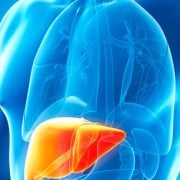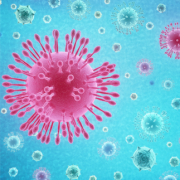Gluten-Free Diet Questioned as Magic Bullet for Related Autoimmune Diseases
“Our results suggest that we should re-examine the widely shared view that gluten-free diet is a magic bullet for the treatment of all pathological conditions associated with celiac disease.”
- Dr. Nicola Imperatore from School of Medicine Federico II of Naples, Italy (NEW YORK (Reuters Health)
Introduction
Coeliac disease (CD) is the most common Th1-mediated enteropathy, frequently associated with other immune-mediated disorders (IMD).
Aims
To evaluate:
- the prevalence of IMD at the time of and after CD diagnosis;
- a possible change in immune response to gluten free diet (GFD);
- the potential role of GFD in reducing and/or preventing IMD in CD.
 Dr. Nicola Imperatore from School of Medicine Federico II of Naples, Italy, and colleagues investigated the prevalence of immune-mediated diseases at the time of and after the diagnosis of celiac disease in 1,255 patients and sought to determine the influence of gluten-free diet on those diseases.
Dr. Nicola Imperatore from School of Medicine Federico II of Naples, Italy, and colleagues investigated the prevalence of immune-mediated diseases at the time of and after the diagnosis of celiac disease in 1,255 patients and sought to determine the influence of gluten-free diet on those diseases.
One in five of these patients suffered from at least one immunological/allergic immune-mediated disease before their diagnosis of celiac disease
In the five years following the diagnosis of celiac disease, another 54% of patients developed immune-mediated disease regardless of whether they were following a strict gluten-free diet.
There was no correlation between
- the occurrence of immune-mediated disease and age at the time of celiac disease diagnosis
- anti-tissue transglutaminase serum levels at the time of diagnosis and at follow-up
- Marsh grade, or clinical symptoms.
Conclusions
The prevalence of IMD at the time of CD diagnosis is high and it seems to increase in the follow-up period despite GFD. A gluten-free diet does not appear to alter the incidence or the nature of immune-mediated diseases in patients with celiac disease, researchers report.
*Celiac disease is mediated by a T helper cell type (Th) 1 immune response to gluten, and both Th1/Th17- and Th2-mediated diseases may coexist in cases of celiac disease. Of the of 1,255 patients, 8% were Th1/Th17 mediated and 42% were Th2 mediated.
Published in
Source: https://www.dldjournalonline.com/article/S1590-8658(16)30382-6/abstract













